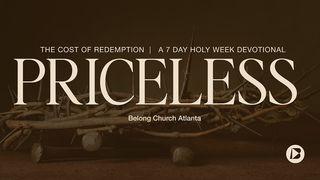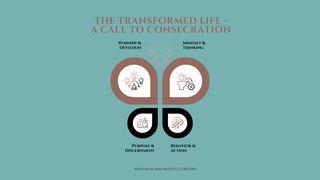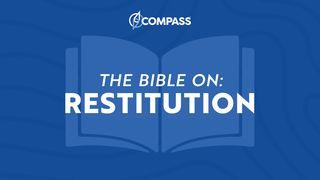Great Is His FaithfulnessSample

Day 1: God Is Faithful
True to your word. That is a clear, concise, accurate definition of what it means to be a faithful person. If you’re faithful, there is consistency between your words and your works, between what you believe and how you behave, between what you promise and what you perform. If someone believes they can trust you and you prove faithful, you will increase their faith in you and strengthen the bond between you. If you prove unfaithful, you will deservedly be on the receiving end of an angry protest from someone who believed they could trust you. And you will damage, perhaps even destroy, a precious relationship.
The Bible defines faithfulness the same way. When Scripture describes a person as “faithful,” it’s almost never referring to how much faith that person possesses, but to how much faith others can place in that person—how much others can trust him or her to perform what has been promised. A faithful person honors, cherishes, maintains, and guards the faith of those who put their trust in them.
That’s exactly what we mean when we say, “God is faithful.” As Christians, we’re saying that God the Father is “able to do what he [has] promised” (Rom. 4:21), that God the Son, the “Word of God” incarnate, is “Faithful and True” (Rev. 19:11, 13), and that God the Holy Spirit, the “Spirit of truth” (1 John 4:6), will not—because he cannot—lie (Heb. 6:18). We’re declaring our belief that God honors, cherishes, maintains, and guards the faith of those who put their trust in him by keeping his promises to them— that he is true to his word.
True to his word. That is a clear, concise, accurate definition of God’s faithfulness. And it’s all quite simple to say, isn’t it? But as the Bible illustrates, God’s faithfulness is often not anywhere near so simple to see in our experience of this fallen age.
We live in this dystopic swirl of disappointment, disease, disasters, and disarray, where we’re subject to futility, war, deceit, financial crises, suffering, grief, depression, dark nights of the soul, and death, all the while constantly battling the sinful desires of the flesh and the eyes and pride of life dwelling in our members (1 John 2:16). It’s not surprising that at any given time, as our perceptions are distorted by our disorienting experiences, it can appear to us as though God is not being true to his word, tempting us to level an angry protest against him.
So, having defined what God’s faithfulness means, though different and sometimes unexpected in the ways it manifests, we have good reason to believe that “he who calls [us] is faithful; he will surely do it” (1 Thess. 5:24). God’s promises are more trustworthy than our perceptions; he really is true to his word.
Prayer
Father, I believe you are faithful; help my unbelief (Mark 9:24)! As I meditate on your word, which reflects all the chaos, calamity, sorrow, and sin in the world, help me see your faithfulness more clearly so I will more deeply trust in you with all my heart and not lean on my own understanding (Prov. 3:5). In Jesus’ name, amen.
Meditate More
Read Romans 4 and ponder: What was it about Abraham’s faith in God’s faithfulness that God counted as righteousness (vv. 20–23)?
Scripture
About this Plan

The Bible is full of examples of God's children struggling to trust him in seasons of disappointment, discouragement, danger, disaster, depression, and deep grief—only to see God's faithfulness to them manifest in surprising ways. These meditations are designed to help you grow in your ability to recognize God's faithfulness in places you may not typically look and at times you don't expect.
More
Related plans

The Shift: Part 3

Purpose in the Pause: Finding Hope in the Waiting

Priceless

The Transformed Life – a Call to Consecration

Redeeming Anger: Turning Pain Into Purpose

A New Way to Love Your Neighbor

SIMPLE: Returning to the Essence of Easter

Horizon Church April Bible Reading Plan - Strengthened by Grace: A Journey Through 1 & 2 Peter

Financial Discipleship – the Bible on Restitution
